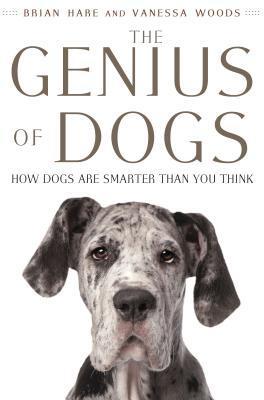
Are We Smart Enough to Know How Smart Animals Are?
Book Description
What if the animals around us possess minds far more complex than we ever imagined? Frans de Waal takes readers on an exhilarating journey into the depths of animal intelligence, revealing astonishing stories that blur the lines between human and beast. From the cunning tactics of dolphins to the sophisticated social structures of chimpanzees, the evidence is overwhelming: our understanding of intelligence needs a dramatic overhaul. Every chapter pulsates with revelations that challenge long-held beliefs, igniting curiosity and awe. As the animal kingdom peels back its layers, one pressing question looms large: Are we truly ready to redefine what it means to be smart?
Quick Book Summary
In "Are We Smart Enough to Know How Smart Animals Are?", Frans de Waal explores the intricate and varied intelligence of animals. Drawing on decades of research, he dismantles outdated views that place human intelligence at the summit and animals as mere instinct-driven creatures. De Waal showcases an array of cognitive feats—from tool use and problem-solving in crows and primates to nuanced emotional lives and social complexities in elephants, dolphins, and apes. He critiques the historical biases of animal cognition studies, urging a more empathetic and accurate approach. The book is a compelling argument to rethink intelligence itself: rather than a single hierarchy, intelligence is multifaceted and adapted to each species’ ecological niche. De Waal’s insights challenge us to expand our understanding of animal minds—and, by extension, our own.
Summary of Key Ideas
Table of Contents
Challenging Human Exceptionalism
Frans de Waal begins by challenging the long-held belief that intelligence is a fixed hierarchy with humans at the top. Historically, psychology and biology have placed animals far below humans in cognitive abilities, often overlooking their skills by designing tests that favor human strengths. De Waal argues that this human-centered view leads to underestimating animals' true capabilities, and he presents several examples where animals have excelled in problem-solving and reasoning when tested in ways that fit their own evolutionary adaptations.
Contextual and Species-Specific Intelligence
Another key theme is the context-dependent nature of intelligence. De Waal examines how various species have evolved unique cognitive skills suited to their ecological environments. For example, crows demonstrate exceptional memory and tool use, while elephants display both empathy and complex social behaviors that are crucial in their societies. By analyzing intelligence within each species’ context, De Waal illustrates that animal cognition is not inferior, but different—tailored to specific survival needs, challenging the “one-size-fits-all” notion of smartness.
The Role of Emotions and Social Structures
Emotion and social structure play crucial roles in animal intelligence. De Waal details remarkable instances of primate empathy, reconciliation, and cooperation, which are often strikingly similar to human behaviors. By documenting cases among apes, elephants, and dolphins, he shows that sophisticated emotional lives are not exclusive to people. These findings disrupt the traditional line drawn between human and animal minds, suggesting that the roots of intelligence and emotion run deep in evolutionary history.
Redefining and Measuring Animal Cognition
The book also critiques traditional methods of measuring animal cognition. Many standardized tests unintentionally disadvantage animals, not recognizing their unique problem-solving approaches. De Waal advocates for “umwelt” thinking—viewing intelligence as relative to an animal’s perceptual and ecological world. By refining experimental designs to reflect natural behaviors, scientists discover new depths of animal intelligence previously overlooked.
Implications for Ethics and Human Self-Understanding
Ultimately, De Waal explores the ethical and philosophical implications of these insights. If animals can reason, empathize, and strategize in species-specific ways, it compels us to reconsider the boundaries of human uniqueness. This recognition does not diminish human intelligence but elevates the rich tapestry of cognition across life. De Waal’s work urges greater humility, respect, and curiosity as we continue to explore the minds of the creatures with whom we share the planet.
Download This Summary
Get a free PDF of this summary instantly — no email required.





